They are the four transformations in Geometry.
What are translation, reflection, rotation and dilation?
What is a conditional statement?
Angles 1 & 5 and angles 2 & 6 are examples of these congruent angles:
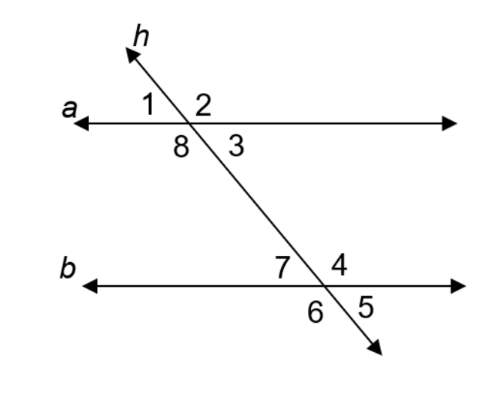
What are alternate exterior angles?
The transformation rule of (x,y) ---> (x+a, y).
What is a translation to the right?
The date of your semester exam.
What is December 21st?
This is the only non-rigid transformation.
What is dilation?
If not p, then not q.
What is the inverse of a conditional statement?
Angles 3 & 4 and angles 8 & 7 are examples of these supplementary angles:

What are consecutive (same side) interior angles?
The transformation rule (x,y) ---> (y,x)?
What is y=x?
The transformation rule of (x,y) ---> (-x,-y).
What is a 180 degree counterclockwise or 180 degree clockwise rotation?
These transformations preserve distance.
What are translation, reflection and rotation?
The converse of this conditional statement:
"If two parallel lines are intersected by a transversal, then corresponding angles are congruent."
What is "If two parallel lines are not intersected by a transversal, then corresponding angles are not congruent?"
Converse: If q, then p.
The value of x in this diagram:
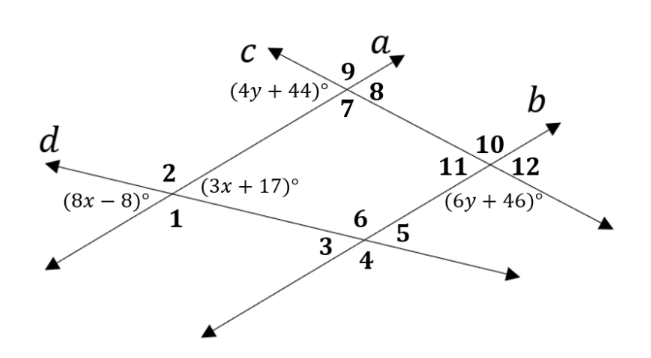
What is 5?
*vertical angles are congruent
The coordinates of Z′′ if ∆XYZ is rotated 90° counterclockwise about the origin, then translated by the rule (x, y) → (x−5, y−2)?
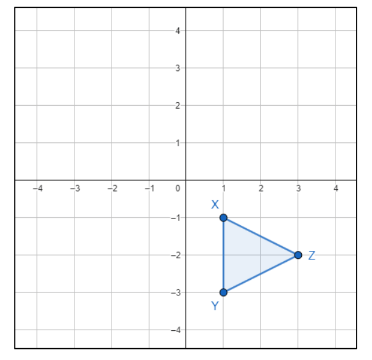
What is (-3,1)?
The triangle congruence or similarity theorem/postulate that corresponds with the diagram:
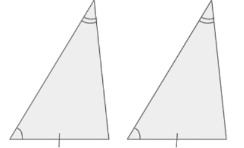
What is Side-Angle-Side?
This transformation does not preserve distance.
What is dilation?
The contrapositive of this conditional statement:
"If two angles and an included side of one triangle are congruent to two angles and an included side of a second triangle, then the two triangles are congruent."
What is "If two triangles are not congruent, then two angles and an included side of one triangle are not congruent to two angles and an included side of a second triangle?"
Contrapositive: If not q, then not p.
The value of y in this diagram:

What is 9?
*consecutive (same side) exterior angles are supplementary
The four main lines of reflections and their transformation rules.
What are x-axis (x, -y),
y-axis (-x,y),
y=x (y,x)
and y=-x (-y, -x)?
The transformations that will create an image that are similar to the preimage?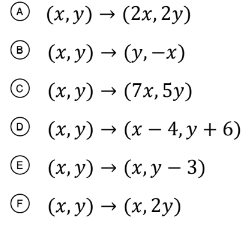
What are A, B, D, and E?
This is a common geometric construction illustrated in the image below.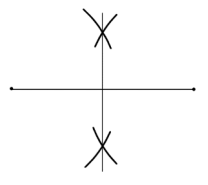
These three pairs of angles are counterexamples to the statement below:
"Supplementary angles are adjacent."
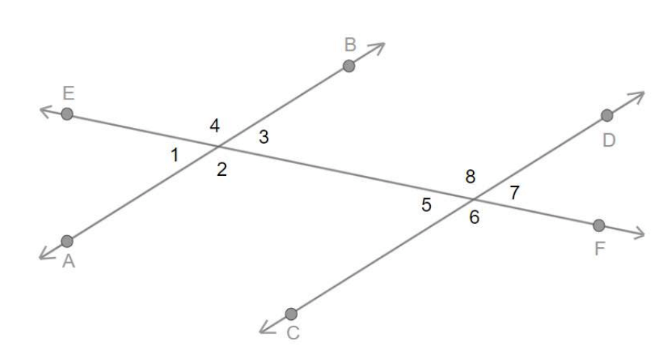
What are angles 3 and 8, angles 3 and 6 and angles 4 and 5?
What is the value of y in the diagram:
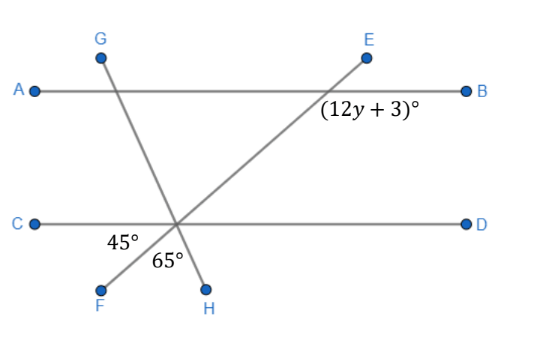
What is 11?
Rectangle ABCD is reflected over the line = 1 and then translated by this rule to map to A"B"C"D"
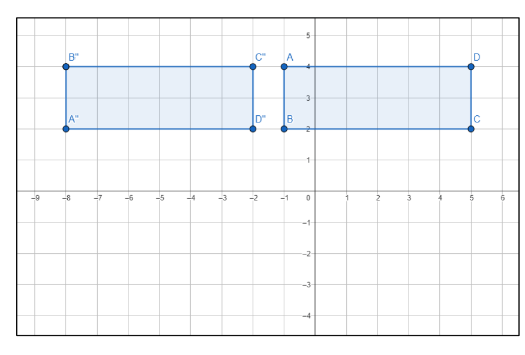
What is (x-7, y+4)?
When is Ms. O'neal's 37th birthday?
What is January 19th?